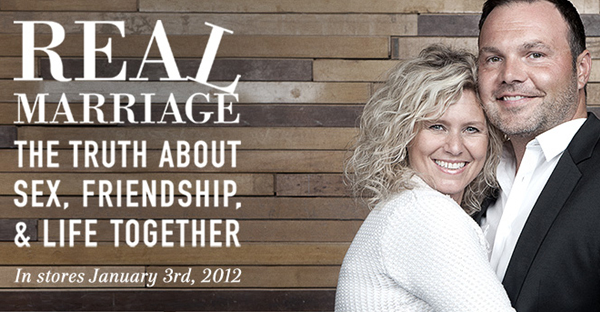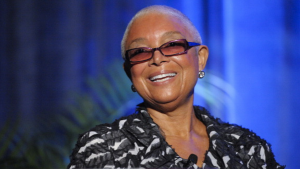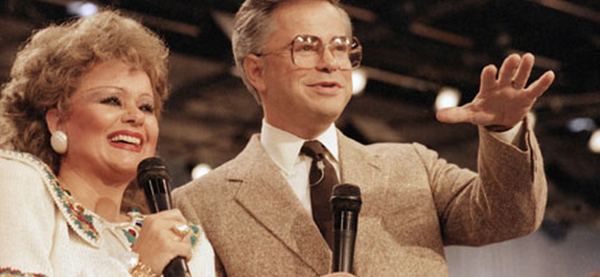I know I’m coming late to the Real Marriage party, but I finally finished the book (don’t blame me for being slow! I also had some sic-fi and apocalyptic fiction to read, and zombies always trump marriage books). Before I deliver my verdict — if you care to read it — let me begin with three disclosures:
First, not only have I never read a marriage book in my life, Nancy and I did not attend pre-marital counseling, we’ve never been to marriage counseling since marriage, and we’ve never even attended a marriage seminar or marriage class. I’m violently allergic to psychobabble — especially the emasculating psychobabble that so often passes for “wisdom” in church circles — and that’s exactly how I perceive the vast majority of evangelical marriage advice. (While I don’t read the books or go to the counseling, I do hear about it incessantly from friends who do read and who do get counseled. Often it seems to do far more harm than good).
Second, my resistance to marriage books and marriage counseling doesn’t mean that I think I’m some sort of model husband. My failings, however, aren’t so much conceptual as practical. In other words, I know what I should do and how I should act, but I just don’t do it. In other words, my failings aren’t “mistakes,” they’re sins.
Third, I like Mark Driscoll. I don’t claim to be a student of his work or even to listen to him that much, but I like his Reformed outlook, and I very much like that he unashamedly fights back against the feminization of the church. When he talks about being alienated from the church because so many of the Christian men he encountered weren’t all that masculine, I completely get what he’s saying. Sometimes he can be crude and imprecise in the way he talks about this problem, but frankly too many men are way too sensitive. Yes, Mark Driscoll has said some crude things about masculinity. Man up and get over it.
Okay, with that as a background, what about the book — a bestseller that is incredibly real and incredibly raw — was it good? Will it be valuable for married Christians?
Yes. Absolutely. But let’s be clear about one thing: This book has a target audience, and it’s not a middle-aged married couple dealing with a looming empty nest or retirees who — after 40 years of marriage — just can’t stand each other any more, nor is the target audience pastors. This is a book written for the younger evangelical generation, a generation living in the shadow of the sexual revolution. Millions of these kids are children of divorce, eighty percent are sexually active before marriage, their theological training is suspect, at best, and they’ve too often bought entirely secular ideas regarding marriage, family, and fulfillment.
In other words, young evangelicals are often bringing an entire trunk full of baggage into their marriages — just like Mark and Grace Driscoll did. The Driscolls meet this audience exactly where they are.
Real Marriage first gives them hope, but it gives hope in the right way — not by creating unrealistic expectations of incredible supernatural triumph over guilt and shame but instead by letting couples know that it is normal and expected that past sins will cause present problems. Don’t panic. Seek God and work through it day by day. You are not failing in your marriage if it takes literally years to get through and past sin and shame.
The book also points couples to God for fulfillment, not each other. This may seem like an obvious and elementary point, but again young readers are likely infected with the idea their spouse is their main source of happiness. “You complete me” is a common refrain from people who are young and in love. Yet we have a hole in our heart that no human being can fill, and if we think our spouse can or should fill it, then we’re dooming ourselves to a lifetime of disappointment and anger — even if married to the best spouse in town.
I remember talking to a friend of mine who’s wife left him after many years of marriage (and four children). “She just wasn’t happy,” he said. “And nothing I could do would make her happy.”
We don’t live to make our spouses happy. In fact, the very quest rests on not one, but two, faulty assumptions. First, we can’t make people happy. That’s not in our power. Second, one of the key reasons why that’s not in our power is that our spouses often don’t even know what will make them happy. They don’t know what they want. Try and fail, and you earn their contempt. Don’t try at all, and you receive their anger.
Real Marriage respects biblical roles for men and women. The concept of male headship may not appeal to our culture, but it is, after all, God’s model for marriage. We can try to dance around it, soft-pedal it, and even deny it — but there it is. Still in the Bible. Of course Mark and Grace Driscoll provide all the proper caveats that leadership is not license for domination and properly point to Christ as the model, but they don’t shy from the core truth. It’s a truth that people may not think will make them happy, but biblical models are rarely the models we’d fashion for ourselves.
Finally, the book does really get into the very raw details of sexuality — complete with a chapter that lists sex acts and discusses whether they’re permissible for married Christians. It feels a bit gimmicky to me, and I don’t agree with all of it (a couple times I thought, “Did he just say that was okay?”), but if they say they get frequent questions along those lines, I believe them. That’s where the book bogged down for me, but not for everyone (judging from other reviews).
The book places great emphasis on married friendship (rather than marital romance), and I think — on balance — that’s a good thing. I’ve heard more than a few sermons about men continuing to “woo” their wives, and it all sounds rather exhausting and, frankly, sappy. The bottom line message of this book, however, isn’t on trying various techniques to improve your marriage but on understanding that our fallen and broken nature will continue to manifest itself, and this reality demands that we not only show grace but also that we temper expectations and look to Christ for our fulfillment.
Had this book existed 16 years ago, and if I had ears to hear its message (and the courage to apply its lessons), it could have made a real difference in our marriage. Experience is certainly a more harsh taskmaster than Mark Driscoll.










